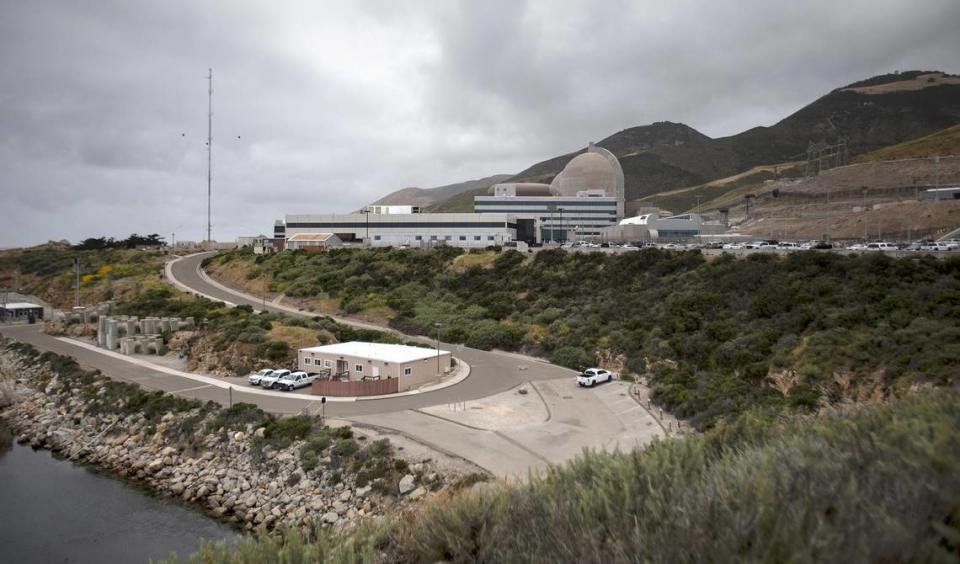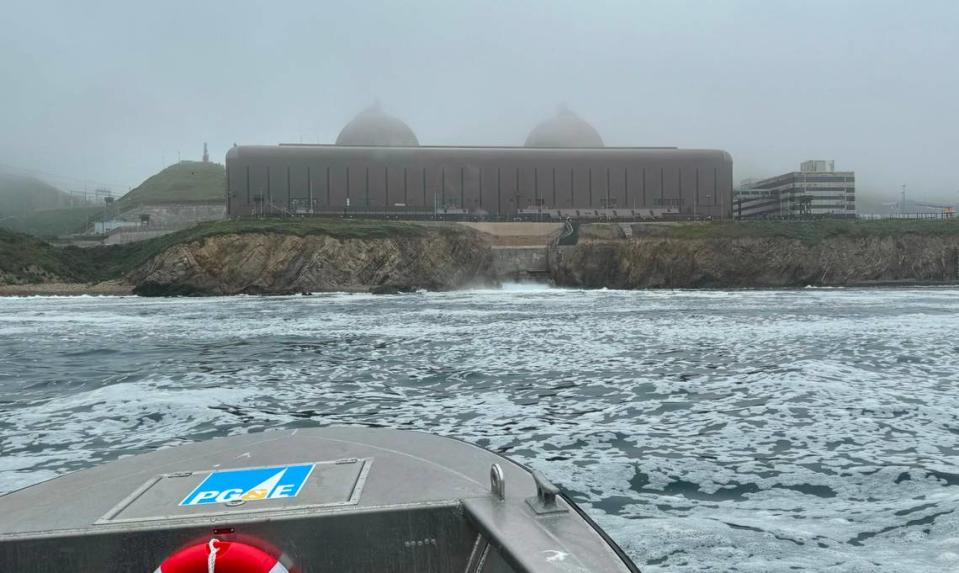Federal court supports decision to keep Diablo Canyon nuclear power plant open
A federal court has upheld the U.S. Nuclear Regulatory Commission’s decision to allow the Diablo Canyon nuclear power plant to keep operating past the expiration of its licenses in 2024 and 2025.
Three anti-nuclear groups sued the NRC in April 2023 over its decision, arguing the agency should have held public hearings and completed certain safety and environmental reviews of the plant before allowing PG&E to keep it running.
Those groups were Friends of the Earth, Mothers for Peace and Environmental Working Group.
The U.S. Court of Appeals for the Ninth Circuit, however, decided the environmental and safety reviews were not required by law, according to a decision released Monday. The court supported the NRC’s decision to keep the plant open while it reviewed PG&E’s application to renew Diablo’s operating license.
The anti-nuclear groups rejected the court’s ruling and may seek a rehearing in the litigation, according to a news release from Friends of the Earth.
The group said the NRC and now the federal court are failing to hold PG&E to a high enough safety standard.
“Today’s decision is a disappointing one,” Friends of the Earth legal director Hallie Templeton said in the release. “We filed our lawsuit because NRC was playing fast and loose with decisions that could quite literally lead to a nuclear meltdown. We will keep fighting to ensure that all involved officials properly and thoroughly apply pertinent laws to Diablo’s attempted extension.”
The NRC declined to comment on the lawsuit.

Court said NRC was justified in allowing continued operations at Diablo
Tucked into the hillside near Avila Beach, the Diablo Canyon nuclear power plant generates 9% of California’s energy.
The power plant’s twin nuclear reactors were originally scheduled to stop operating in 2024 and 2025.
In 2022, the state Legislature passed Senate Bill 846, which directed PG&E to take action to extend the plant’s operating license to support California’s energy grid, as not enough clean energy had been produced in the state to replace it.
Normally, the NRC requires plant operators to submit a license renewal application at least five years before the existing license expires.
In October 2022, however, PG&E applied to the NRC for an exemption to the five-year deadline, asking permission to submit another license renewal application.
The NRC granted PG&E’s request in March 2023, allowing the utility company to operate the nuclear plant past its scheduled closure dates while waiting for the NRC to review the application — as long as PG&E submitted the application by the end of the year.
The NRC’s application review process lasts at least 18 months, according to the decision.

The NRC said continued operation of the plant was justified by California’s energy needs, outlined in SB 846, and would not jeopardize public health and safety.
The three anti-nuclear groups sued the NRC over their decision in April 2023. Their lawsuit argued that allowing the plant to run past its scheduled closure should count as a modification to PG&E’s operating license, which would require the NRC to conduct a public hearing and various safety and environmental reviews.
Additionally, the groups said aging safety equipment at the plant put the public at risk.
In a decision released Monday, however, the court said the groups did not present enough enough evidence to prove continued operation of the plant would harm the public or the environment.
The court said the NRC’s exemption would not count as a modification to the plant’s operating license. This means the public hearings, environmental and safety reviews were not required by law.
Meanwhile, “the NRC adequately explained why California’s changing energy needs constitute a special circumstance, and why the record supported its findings of no undue risk to the public health and safety,” the decision said.

